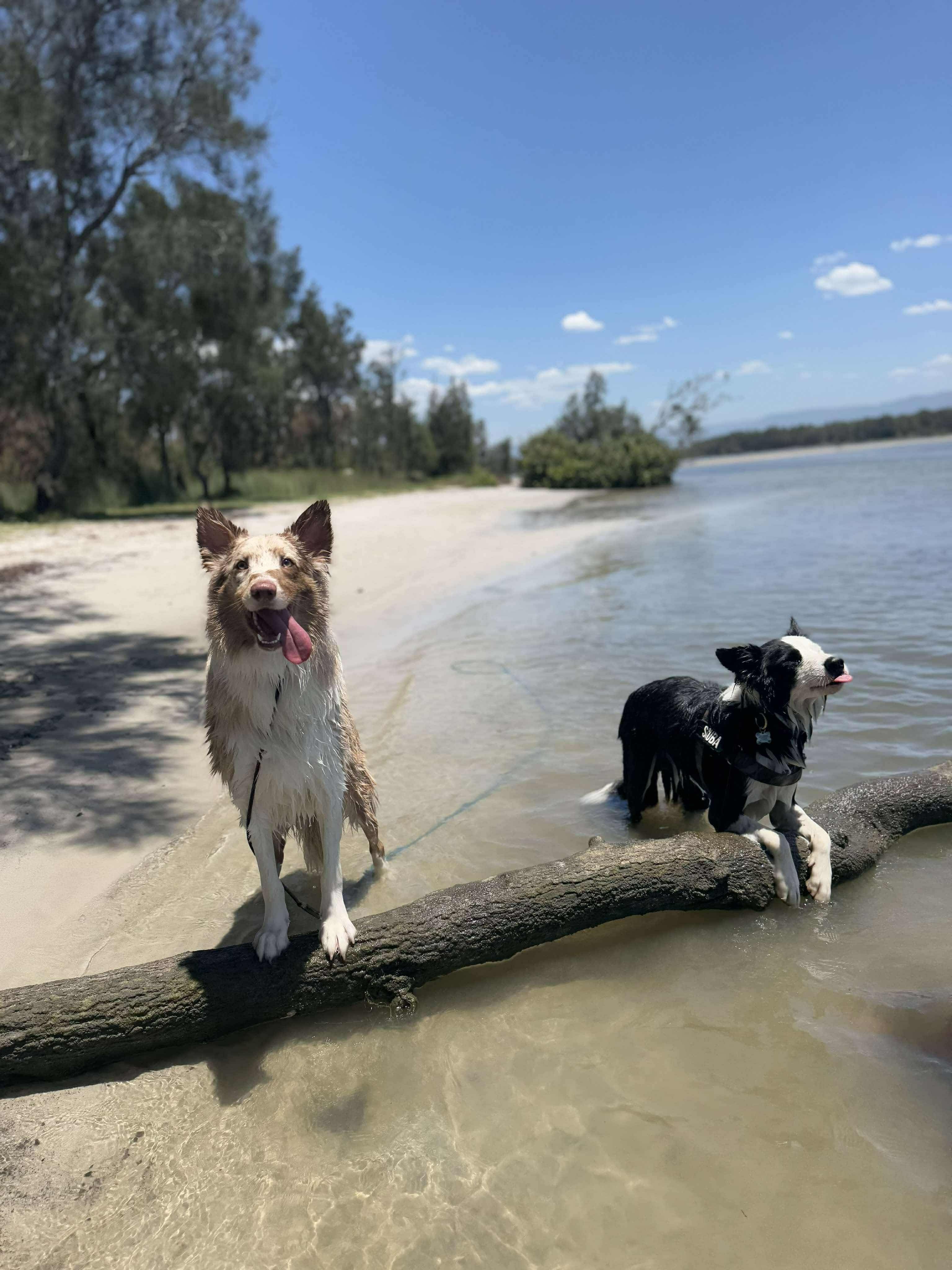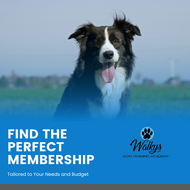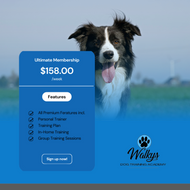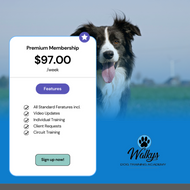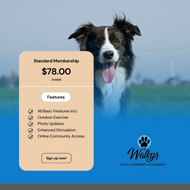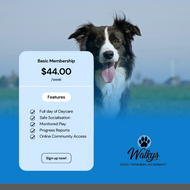December 17, 2024
How to Train Your Dream Aussie Summer Beach Dog
Nothing says Aussie summer like a day at the beach with your dog.
Picture this: golden sand underfoot, waves rolling in, and your dog running off-leash, calm and confident, happily exploring but always coming back to check in. Sounds like a dream? It doesn’t have to be. With the right training and structure, you can create the perfect Aussie summer beach dog.
Here’s how to build a calm, well-behaved companion ready to enjoy the sand and surf with you—even with all the distractions a beach can throw their way.
Step 1: Build a Solid Foundation of Training
Before hitting the beach, it’s essential to teach the basics:
- Sit, Down, Place, Heel, Recall (Come) and a strong release cue (Break).
- Duration, Distance, Distraction: Gradually teach your dog to hold commands for longer, respond at a distance, and stay focused, even when the world around them is exciting.
Training in small, controlled steps ensures your dog stays calm and focused in unpredictable environments like the beach.
Step 2: Create a Reliable Recall
A strong recall is non-negotiable for off-leash freedom. Here’s how to master it:
- Start in quiet areas and use high-value rewards (think Prime100 treats or a favourite toy).
- Use a consistent cue—like “Here!”—and always reward enthusiastically when your dog comes back.
- Practice with a long leash as distractions increase (other dogs, kids, waves).
Pro Tip: Teach an emergency recall. A whistle or a special word should mean “come to me immediately, no matter what,” with the best rewards waiting when they do.
Step 3: Teach Impulse Control
Impulse control separates a wild beach dog from a calm one:
- Place Training: Teach your dog to hold a position on a mat or towel, no matter what’s happening around them.
- Food and Toy Refusal: Practice ignoring dropped food or other temptations.
- Wait Before Play: Your dog earns the freedom to play after calm behaviour.
At the beach, impulse control helps your dog stay calm when meeting other dogs, seeing wildlife, or feeling the excitement of the waves.
Step 4: Fulfil Your Dog’s Needs Before the Beach
A dog’s calmness is built on fulfillment:
- Physical Exercise: A short walk or structured play session before the beach burns off initial energy.
- Mental Stimulation: Use training games, puzzles, or tricks to tire your dog mentally.
- Genetic Needs: Fulfil breed-specific traits—like retrieving for retrievers or structured digging for terriers.
A fulfilled dog is a calm dog. By meeting their needs first, your pup will be less likely to act out when off-leash.
Step 5: Introduce Beach Distractions Gradually
Start slow. Choose quieter beaches during off-peak times to build confidence.
- Leash Walk First: Allow your dog to explore calmly on-leash. Use “yes” to mark engagement with you.
- Short Off-Leash Sessions: Release with “Break” and call back periodically. Reward every return.
- Increase Challenges: Gradually introduce distractions like other dogs, kids playing, or waves.
Remember: Calm behaviour always earns freedom. If your dog gets overstimulated, reset with structured play or leash work.
Step 6: Reward Calmness and Engagement
Reward your dog for checking in with you voluntarily. Use verbal praise, treats, or quick games of tug to make you the most exciting thing at the beach.
- Calm behaviour (lying down, sitting, or walking beside you) earns rewards.
- Voluntary focus (looking at you) gets an enthusiastic “Yes!” and a treat.
A dog that naturally engages with you will stay reliable, even off-leash.
Step 7: Be the Leader Your Dog Trusts
Calm dogs come from calm leaders. Be clear, fair, and consistent in your expectations. If your dog gets distracted or pushes boundaries, guide them back with calm leadership.
Corrections: A verbal “AH” followed by redirection to a correct behaviour resets the session without frustration.
Step 8: Proof Training in Real-World Settings
Train everywhere—parks, trails, beaches—and proof behaviours in different conditions:
- High winds, kids, dogs, and wildlife.
- Morning calm vs. peak afternoon chaos.
- Noise from waves, crowds, or nearby roads.
The more environments you train in, the more reliable your Aussie beach dog becomes.
The Aussie Summer Beach Dog Checklist
By following this guide, you’ll have a beach-ready pup who:
- Responds reliably off-leash.
- Comes when called, every time.
- Ignores distractions like other dogs, kids, or seagulls.
- Stays calm and engaged with you, enjoying every moment at the beach.
Ready to Train Your Dream Aussie Beach Dog?
At Walkys Dog Training Academy, we help dog owners turn their pups into calm, confident companions through expert training, structured fulfillment, and personalised guidance.
Take the next step towards an Aussie summer you’ll never forget—one where your dog enjoys freedom and fun with you, no matter the distractions.
Sign up for a free Zoom consultation today and let’s build the calm beach dog of your dreams!
Cool Summer Adventures Start Here
Training your dream Aussie summer beach dog doesn’t have to be hard. With structure, calm leadership, and consistency, you’ll create a companion ready for sand, surf, and sunshine—off-leash and distraction-proof.

